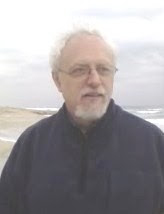
Sticks and stones may break our bones, but words can and do hurt us.
So, let's stop using words as weapons of mass destruction.
On October 2, (International Day of Non-Violence) IPP and a number of local groups will call upon people to stop over the noon hour and reflect on the way we use our voices and our words to hurt other people. We will ask everyone to take a vow of non-violence that includes refraining from the violent use of language. (See description at the end of this document).
If you can't join us on October 2, I urge you to join me in taking time to confront the verbal violence in our own lives. Take an hour at noon to do this. If you can't reflect on this at noon, choose another time. But do take the time. It's very important.
The need for such reflection and such a vow is becoming clearer every day as our public discussions about important issues becomes more and more heated, filled with vitriol, hate speech and sadly even racism. This must stop on all sides. Whether hateful, violent speech is used against President Obama or former President George W. Bush, we urgently need to declare a ceasefire, and return our discussions to ideas rather than hatred.
The same is true in our personal lives. Many people who espouse non-violence and would never think of shooting or stabbing someone, let alone bombing them, won't hestitate to drop "the F bomb" in shouting matches with others, inclding people who are supposed to be our loved ones.
The Urgent Need for Verbal Non-Violence
Will be the Focus of an Oct 2 Noon-time Observance of
International Day of Non-Violence
On Friday, October 2, 2009 (Mahatma Gandhi's birthday), Interfaith Paths to Peace in cooperation with a number of other local organizations will host a special noontime observance of International Day of Non-violence. This special ceremony will be held from 12:10 p.m. until 1 p.m. in Bishops Hall at Christ Church Episcopal Cathedral at 425 South Second Street in Louisville.
The observance will consist of a lighting of candles and a silent reflection on the urgent need for each of us to disarm ourselves from the violent and hurtful language we often use in dealing with each other, especially in light of recent news about hate language and personally abusive words being used in the public arena. Those present for the observance will be invited to take an annually renewable vow of non-violence that includes a pledge to disarm from the use of violent language in dealing with others. The event will conclude with a special Tibetan Chant for Non-Violence vocalized by the Venerable Geshe Sangay Gyatso, Louisville's resident Tibetan monk.
Co-sponsors for the event include the United Nations Association of Louisville, St. William and St. Agnes Catholic Churches, Christ Church Episcopal Cathedral, Louisville's Drepung Gomang (Tibetan Buddhist) Institute, the Peace and Justice Division of the Episcopal Diocese of Kentucky, Iranians for Peace, Our1Planet, and the Louisville Chapter of the Fellowship of Reconciliation..
Event organizer Terry Taylor, Executive Director of Louisville-based Interfaith Paths to Peace, says, "At a time when civility has seemingly disappeared from our public discourse on important issues, the need for a declaration of a verbal "cease fire" is imperative. And I can think of no better time to focus on that urgent need than Gandhi's birthday, the day that is observed around the world as the International Day of Non-Violence."
About the International Day of Non-Violence.
The International Day of Non-Violence is marked on 2 October, the birthday of Mahatma Gandhi, leader of the Indian independence movement and pioneer of the philosophy and strategy of non-violence.
According to General Assembly resolution A/RES/61/271 of 15 June 2007, which established the commemoration, the International Day is an occasion to "disseminate the message of non-violence, including through education and public awareness." The resolution reaffirms "the universal relevance of the principle of non-violence" and the desire "to secure a culture of peace, tolerance, understanding and non-violence."
Introducing the resolution in the General Assembly on behalf of 140 co-sponsors, India’s Minister of State for External Affairs, Mr. Anand Sharma, said that the wide and diverse sponsorship of the resolution was a reflection of the universal respect for Mahatma Gandhi and of the enduring relevance of his philosophy. Quoting the late leader’s own words, he said: "Non-violence is the greatest force at the disposal of mankind. It is mightier than the mightiest weapon of destruction devised by the ingenuity of man."

No comments:
Post a Comment